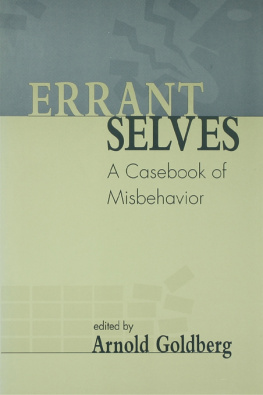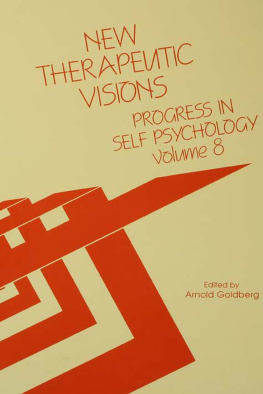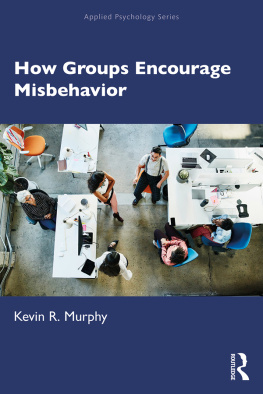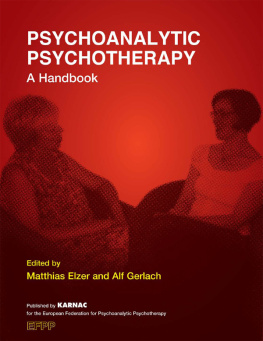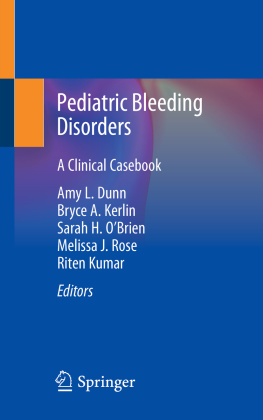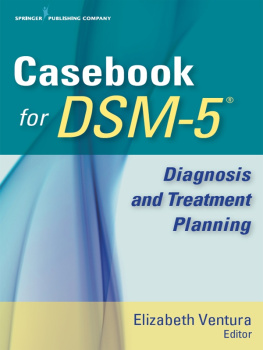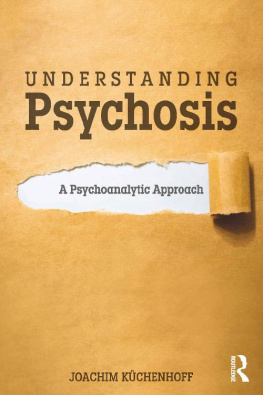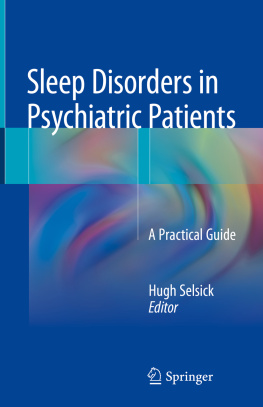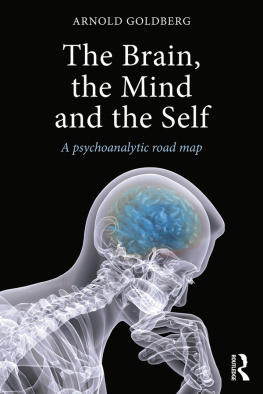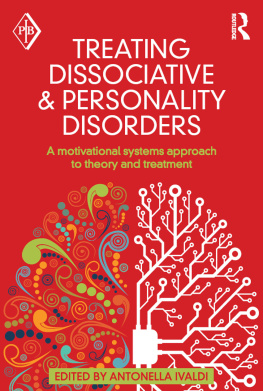
ERRANT SELVES
A Casebook of Misbehavior
EDITED RY
ARNOLD GOLDBERG
A major addition to the psychoanalytic casebook literature, Errant Selves: A Casebook of Misbehavior is a collection of case studies dedicated to the psychoanalytic understanding and treatment of behavior disorders. Guided by the self-psychological framework developed by Arnold Goldberg in Being of Two Minds (TAP, 1999), the contributors to this volume explore cases of perversion, delinquency, and addiction in which the misbehavior at issue served primarily to ward off painful affects or states of dysphoria in order to achieve a basic integrity of the self. For these patients, the pathway to self-cohesion entailed the florid acting out typical of narcissistic behavior disorders.
But these patients not only derived feelings of strength and even pleasure from their conduct; they were simultaneously repulsed by their own perverse and aberrant behavior. Indeed, as the contributors show, the patients own moral revulsion for their misbehaviors routinely became the launching pad for analytic understanding and subsequent control or eradication. Following Goldbergs theoretical framework, this troubling state of affairs is understood in terms of vertical splits and the psychology of disavowal. For patients with errant selves, that is, the psychodynamics of disavowal have shaped development to the point that they end up living parallel lives with different values, ambitions, and goals.
Clinical readers of all persuasions will be intrigued by treatment narratives that chronicle the special challenges of working with patients who, in Goldbergs words, were neither unitary selves nor persons with an easy ability to bolster or reconstitute themselves in socially acceptable ways. Of special interest is the contributors sensitivity to what they missed with these troubled and troubling patients; they recount examples of skewed focus, of strained rationalization, even of glaring clinical omission, all of which suggest that the patients psychic splits activated parallel splits on the part of their therapists.
What emerges from the contributors efforts, then, is very much a casebook of our time. It extends the purview of psychoanalysis to the developmental history and psychodynamics of disavowal; explores the analytic management of delinquent, perverse, and addicted patients; and examines the analysts subjective presence in these treatments, including his or her potential for self-deception and collusion. And it does so in the context of probing a theoretical issue of continuing practical import: whether or not psychoanalytic therapy is best served by viewing the patient as a unitary individual with a coherent sense of agency and an integrated set of values and goals.
Arnold Goldberg, M.D. is the Cynthia Oudejans Harris, M.D. Professor of Psychiatry, Rush Medical College and Training and Supervising Analyst, Institute for Psychoanalysis, Chicago. He is the author of many books in psychoanalysis and psychoanalytic self psychology including, most recently, The Problem of Perversion (1995) and Being of Two Minds: Tiie Vertical Split in Psychoanalysis and Psychotherapy (TAP, 1999).
Errant Selves
Errant Selves
A Casebook of Misbehavior
edited by
Arnold Goldberg

2000 by The Analytic Press, Inc.
All rights reserved. No part of this book may be reproduced in any form: by photostat, microform, retrieval system, or any other means, without the prior written permission of the publisher.
Published by
The Analytic Press, Inc., Publishers
Editorial Offices:
101 West Street
Hillsdale, New Jersey 07642
www.analyticpress.com
Designed and typeset by Compudesign, Charlottesville, VA
Index by Leonard S. Rosenbaum
Library of Congress Cataloging-in-Publication Data
Errant selves : a casebook of misbehavior / edited by Arnold Goldberg.
p. cm.
Includes bibliographical references and index.
ISBN 0-88163-333-X
1. Compulsive behaviorCase studies. 2. Psychology, PathologicalCase studies. 3. PsychoanalysisCase studies.
I. Goldberg, Arnold, 1929
RC533.E774 2000
616.85'227-dc21
00-057603
Printed in the United States of America
10 9 8 7 6 5 4 3 2 1
Contents
Acknowledgments
The editor and contributors are grateful for the support of their families, friends, and patients. In addition to the authors of these cases, our study group was composed of Constance Goldberg, Dr. Robert Gordon, Dr. Robert J. Leider, Dr. Sheldon Meyers, Ms. Judith Newman, Dr. David Solomon, and Dr. Ruth Yanagi. Financial support for our work was given by the Psychotherapy Fund of Rush-Presbyterian-St. Lukes Medical Center in Chicago. Editorial and secretarial assistance was provided by Ms. Christine Susman. She and all of those listed were supportive and encouraging throughout this project and we are all indebted to them.
Introduction
This book evolved over time. A group of analysts was formed in order to collect and study cases of perversions, delinquencies, and addictions for a casebook. We met to discuss these cases, and we hoped ultimately to publish the clinical data we felt were all of a piece, that is, the cases in which behavior disorders shared similar characteristics, a similarity that deserved a detailed presentation. One of the features common to all cases was that the noteworthy behavior (of whatever sort) served primarily to ward off or obliterate painful affects or states of dysphoria, and in doing so to make for a feeling of self-strength or consolidation. Just as a long run for exercise or a comic movie for fun helps one temporarily both to forget reality and to live in another world, so too did these behaviors enable our patients to step away from their everyday and often unhappy lives and to experience relief and (sometimes) pleasure. That some or most of these behaviors were more appropriately termed misbehavior, such as seen in the sexual perversions, was considered to be an added ingredient to that first basic and fundamental characteristic: the behavior was necessary. One could, of course, think of this misbehavior as defensive or as a weakness or even as a communication to others. But all of that came later. We began with the understanding that it made no sense to try to suppress or eradicate someones needs, no matter how offensive the needs may seem to others. With our commitment to understanding the symptom rather than treating the behavior, we saw it primarily as necessary for achieving a sense of self-consolidation in our patients.
The second feature assigned to this fairly large and (at first) poorly delineated category of misbehavior had to do with the degree of offensiveness. Most if not all of our patients seemed to share much the same dislike of what they did as did the rest of us. Although it became clear to us that our patients could make no claim to being run of the mill criminals, perverts, or addicts, we could not conclude that they were much different from what is commonly considered as antisocial, save that they regularly joined with us in contemplating the awfulness of and disdain for their actions. This in itself soon became a significant, if not essential, component for better definition and delineation of our own categorization and a critical issue in the consideration of treatment, inasmuch as the negative appraisal of the behavior was regularly the launching pad for its later understanding and subsequent control or eradication. Here is one beautiful example of this kind of negative appraisal, its appearance and disappearance.
Next page
